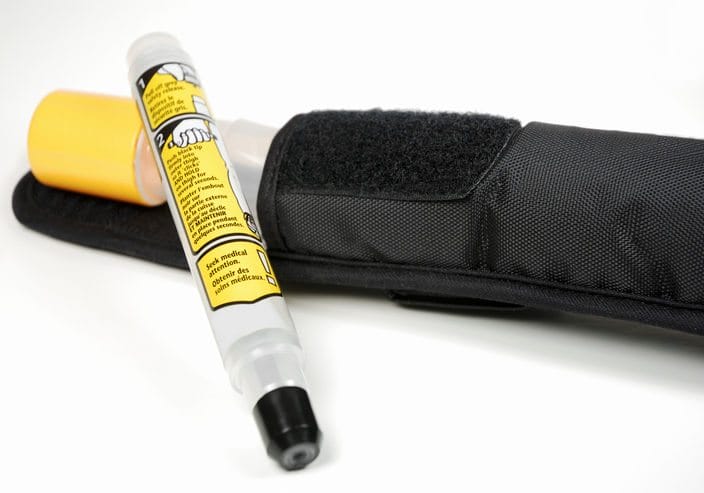A new study confirming the safety of current allergy shots practices, calls into question the need for proposed new rules that the United States Pharmacopeia (USP) has proposed as a means to protect against infections.
Representatives of AAAAI have repeatedly said the new rules are unnecessary, and would likely restrict patient access to the popular desensitizing treatment, which currently helps successfully treat 2.6 million patients in the U.S. who have allergic rhinitis, conjunctivitis, asthma and sting allergies.
In the study, conducted by researchers at Massachusetts General Hospital and published in The Journal of Allergy and Clinical Immunology (JACI) in April 2016, researchers analyzed 10 years’ worth of data from two large Boston hospitals, covering 3,242 patients who have collectively received a total of 136,322 allergen immunotherapy (AIT) injections.
Researchers said that, of the “86 episodes of infections occurring within five days of receiving an allergy shot,” none were found to be related to the treatment.
“Out of the many millions of injections, administered to millions of patients, over several decades, there are no reported infections,” Long said in a AAAAI news release. “In this study, our team also found zero reported infections due to allergy shots. It’s clear that the sterility and safety practices in place during the study period are adequate in preventing adverse infectious outcomes related to the preparation and administration of AIT,” he added.
The safety record of the allergy shots extraction process, which is done in an allergist’s office using aseptic techniques, is well-established and has been in clinical practice for more than 100 years. In addition to improving access and availability for patients, allergists opposed to the proposed USP rules say the existing process also allows them to monitor patients closely for reactions for 30 minutes after receiving an allergy injection, and allows for continuity of care.
AAAAI says that USP’s proposed stringent protocols for sterility and engineering control were designed to keep people safe for intravenous, spinal and other forms of systemic administration rather than under-the-skin injection. Shorter expiration dates under the new USP proposed rules would further complicate the ability of allergists to deliver the treatment: It would be mean “more allergy shots, more cost, less chance of reaching an effective dose, and increased risk of the patient for allergic reaction to allergy shots,” allergist and AAAAI fellow Dr. Andrew Murphy told Allergic Living in January.
“Even though there are no reports of infection resulting from allergy shots, proposed United States Pharmacopeia (USP) regulations would restrict allergen compounding and drastically limit patients’ access to allergy shots,” concluded Long.
To learn more and sign a AAAAI petition to protect access to allergy shots, click here.





